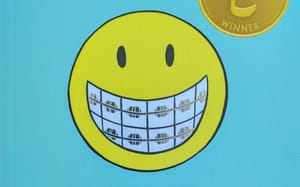Steven Johnson, author of Everything bad is good for you: how today’s popular culture is making you smarter, writes about a couple of recent discussions of reading, including the much discussed NEA report. :
The problem with both arguments is that they’re fundamentally rehashing the technological opposition of the television age, the kind of opposition that McLuhan wrote about so powerfully back in the 1960s: word versus image, text versus screen. But that long-term decline towards a pure society of image has been reversed by the rise of digital media. What separates the Google generation from postwar generations is the shift from largely image-based passive media to largely text-based interactive media.
We don’t know exactly how that will play out in the long run, but thus far, when you look at the demographic patterns of the Google generation, there is not only no cause for alarm: in fact, there’s genuine cause for celebration. The twentysomethings in the US – the ones who spent their childhood years engaged with computers and not zoning out in front of the TV – are the least violent, the most politically engaged and the most entrepreneurial since the dawn of the television era. [Dawn of the digital natives – is reading declining? | Technology | The Guardian]
Related entries:



